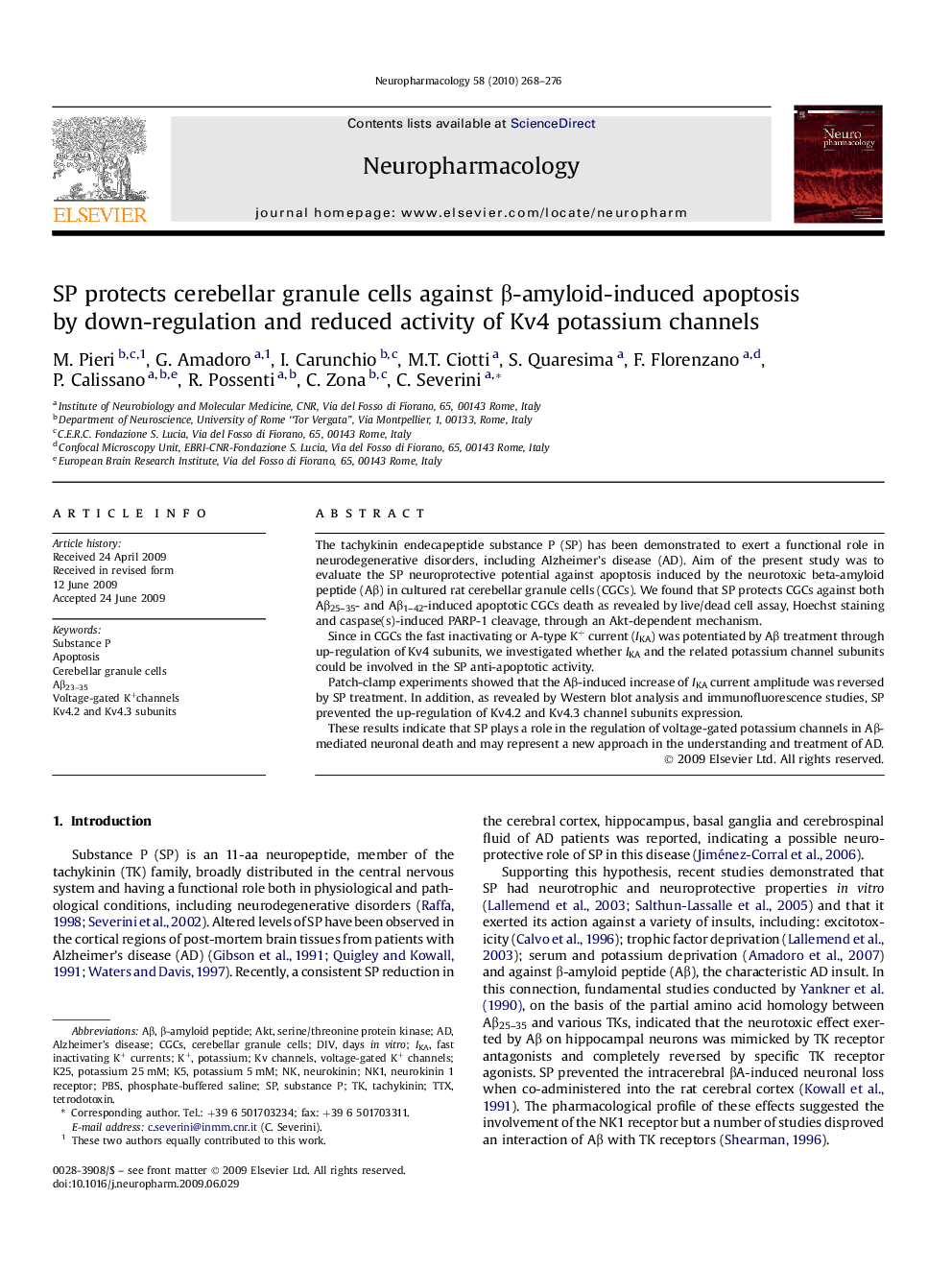| Article ID | Journal | Published Year | Pages | File Type |
|---|---|---|---|---|
| 2494195 | Neuropharmacology | 2010 | 9 Pages |
The tachykinin endecapeptide substance P (SP) has been demonstrated to exert a functional role in neurodegenerative disorders, including Alzheimer's disease (AD). Aim of the present study was to evaluate the SP neuroprotective potential against apoptosis induced by the neurotoxic beta-amyloid peptide (Aβ) in cultured rat cerebellar granule cells (CGCs). We found that SP protects CGCs against both Aβ25–35- and Aβ1–42-induced apoptotic CGCs death as revealed by live/dead cell assay, Hoechst staining and caspase(s)-induced PARP-1 cleavage, through an Akt-dependent mechanism.Since in CGCs the fast inactivating or A-type K+ current (IKA) was potentiated by Aβ treatment through up-regulation of Kv4 subunits, we investigated whether IKA and the related potassium channel subunits could be involved in the SP anti-apoptotic activity.Patch-clamp experiments showed that the Aβ-induced increase of IKA current amplitude was reversed by SP treatment. In addition, as revealed by Western blot analysis and immunofluorescence studies, SP prevented the up-regulation of Kv4.2 and Kv4.3 channel subunits expression.These results indicate that SP plays a role in the regulation of voltage-gated potassium channels in Aβ-mediated neuronal death and may represent a new approach in the understanding and treatment of AD.
